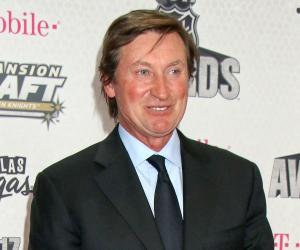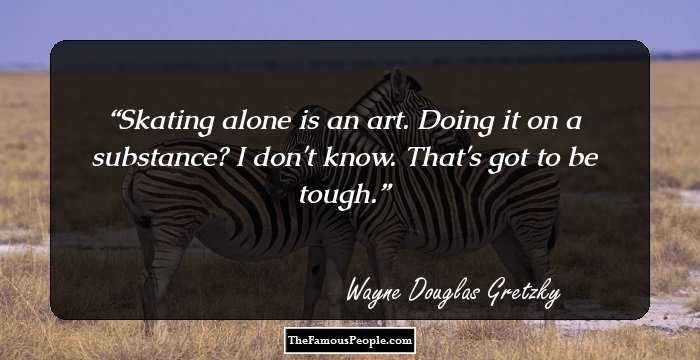
Skating alone is an art. Doing it on a substance? I don't know. That's got to be tough.
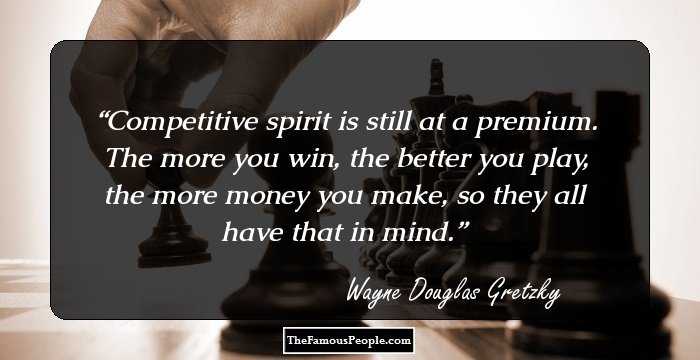
Competitive spirit is still at a premium. The more you win, the better you play, the more money you make, so they all have that in mind.
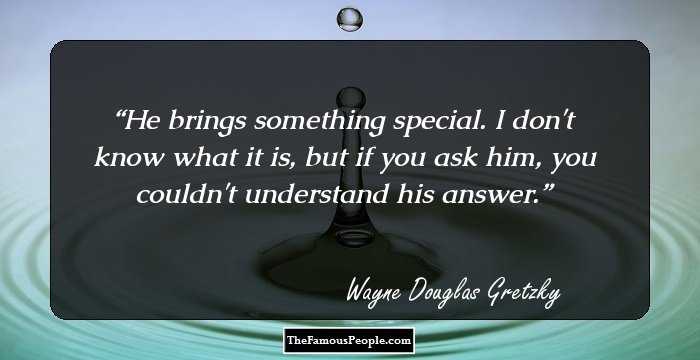
He brings something special. I don't know what it is, but if you ask him, you couldn't understand his answer.
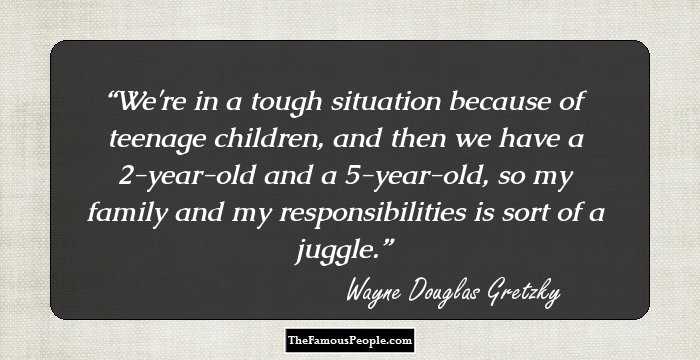
We're in a tough situation because of teenage children, and then we have a 2-year-old and a 5-year-old, so my family and my responsibilities is sort of a juggle.

You miss the ball you do not hit 100%
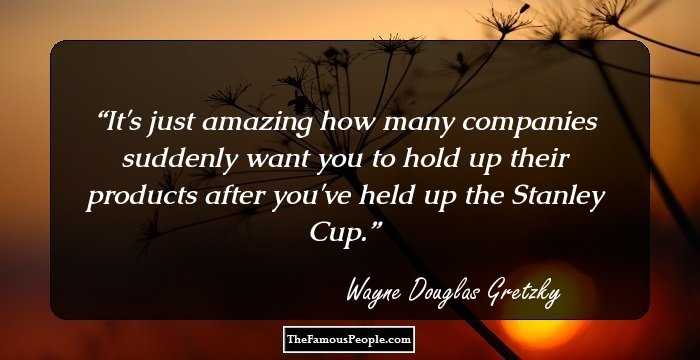
It's just amazing how many companies suddenly want you to hold up their products after you've held up the Stanley Cup.
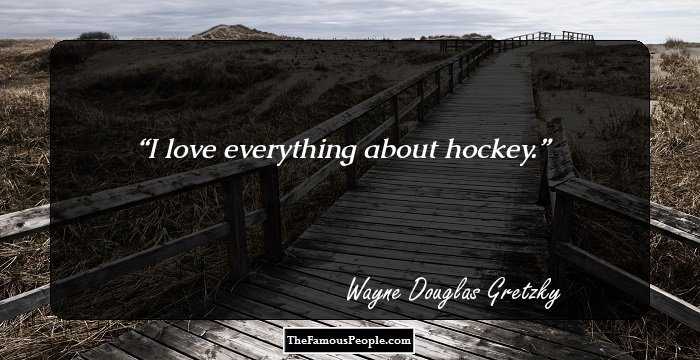
I love everything about hockey.
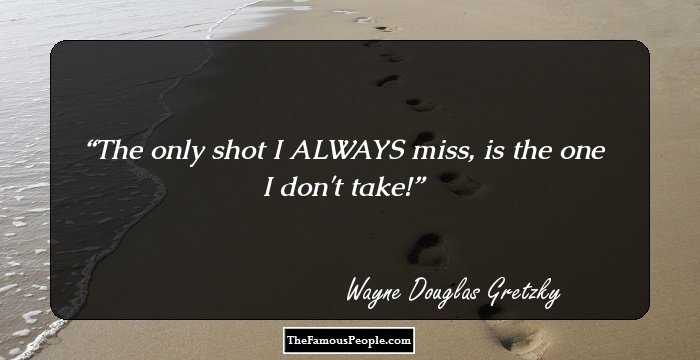
The only shot I ALWAYS miss, is the one I don't take!
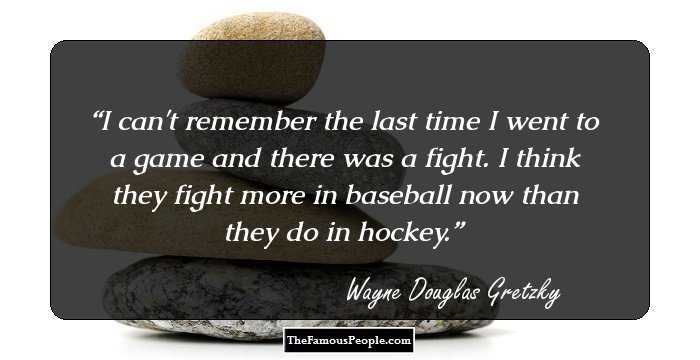
I can't remember the last time I went to a game and there was a fight. I think they fight more in baseball now than they do in hockey.
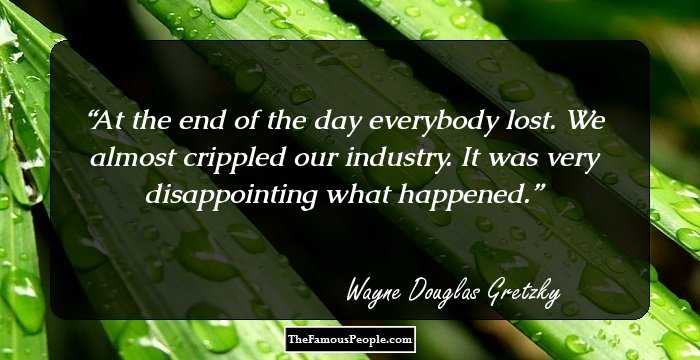
At the end of the day everybody lost. We almost crippled our industry. It was very disappointing what happened.
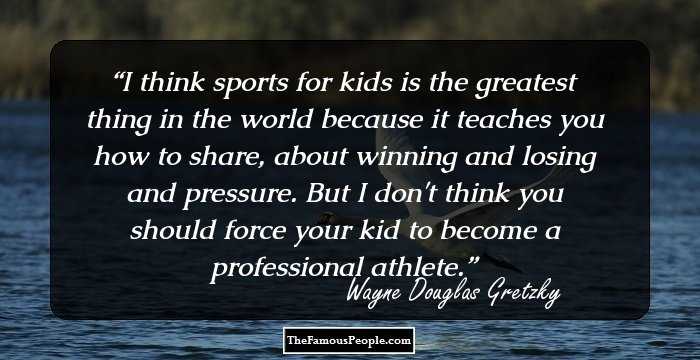
I think sports for kids is the greatest thing in the world because it teaches you how to share, about winning and losing and pressure. But I don't think you should force your kid to become a professional athlete.
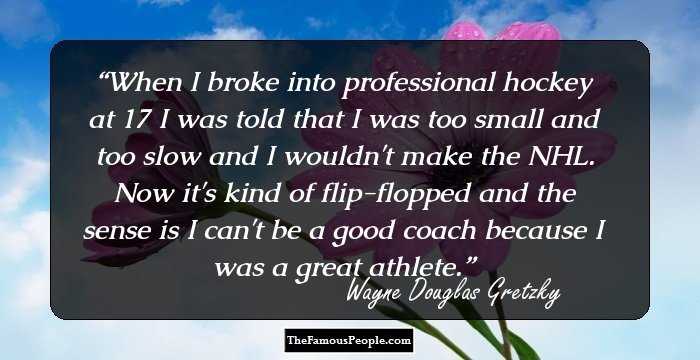
When I broke into professional hockey at 17 I was told that I was too small and too slow and I wouldn't make the NHL. Now it's kind of flip-flopped and the sense is I can't be a good coach because I was a great athlete.
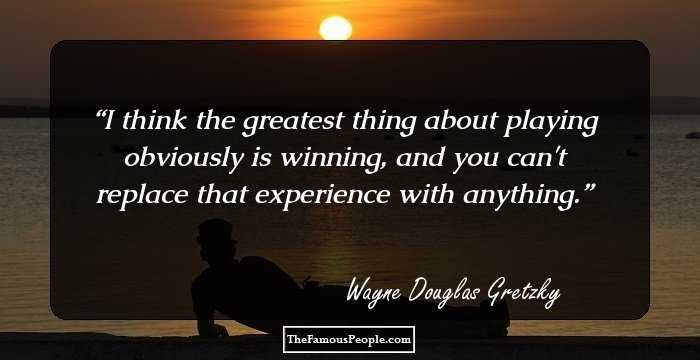
I think the greatest thing about playing obviously is winning, and you can't replace that experience with anything.
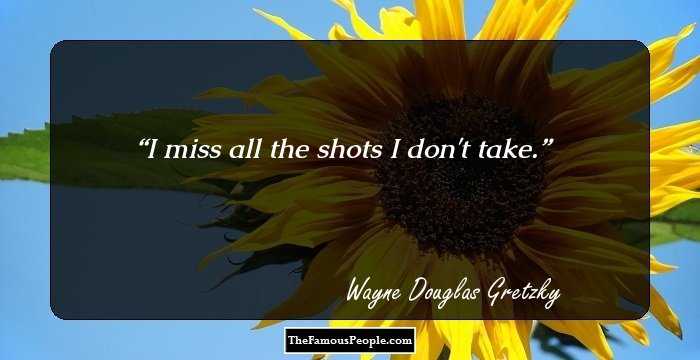
I miss all the shots I don't take.
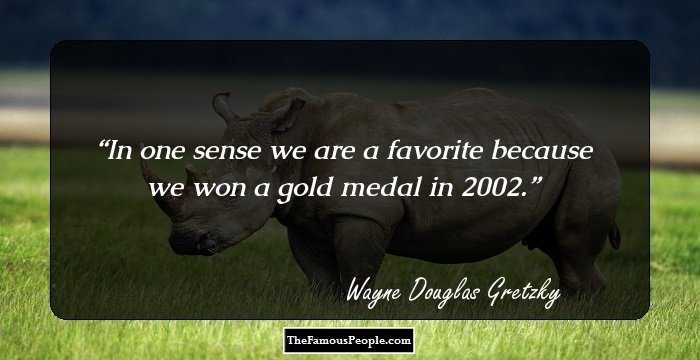
In one sense we are a favorite because we won a gold medal in 2002.
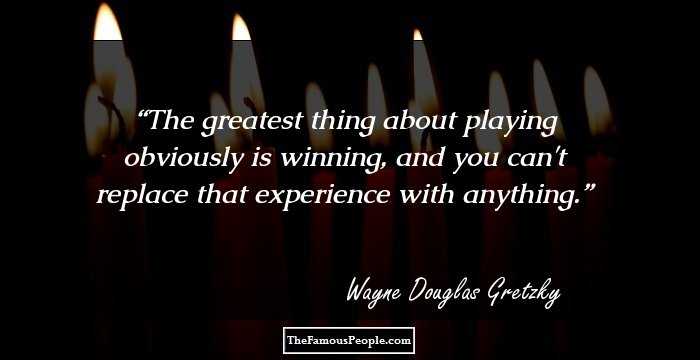
The greatest thing about playing obviously is winning, and you can't replace that experience with anything.
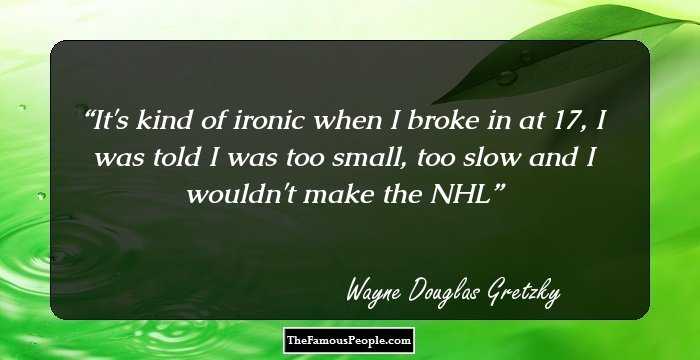
It's kind of ironic when I broke in at 17, I was told I was too small, too slow and I wouldn't make the NHL
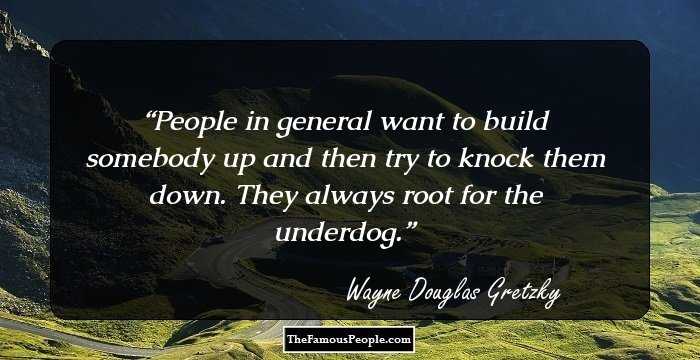
People in general want to build somebody up and then try to knock them down. They always root for the underdog.
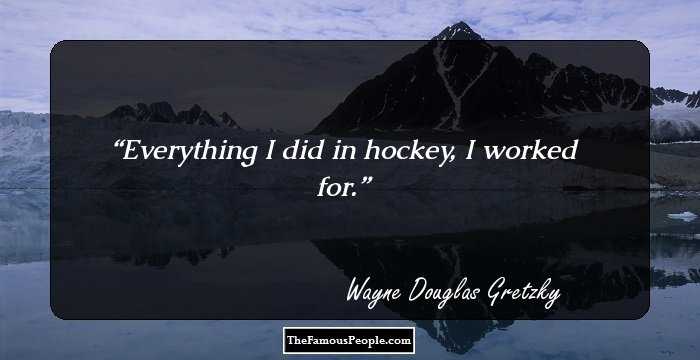
Everything I did in hockey, I worked for.
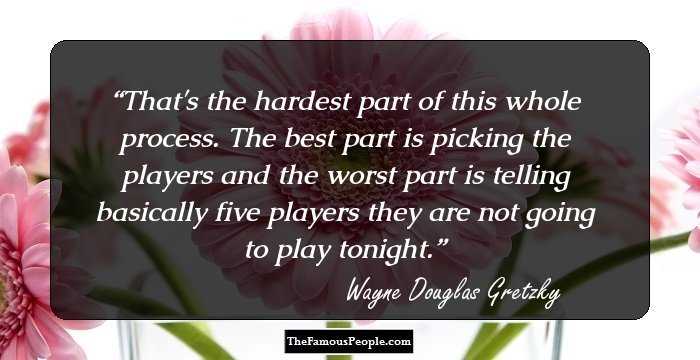
That's the hardest part of this whole process. The best part is picking the players and the worst part is telling basically five players they are not going to play tonight.
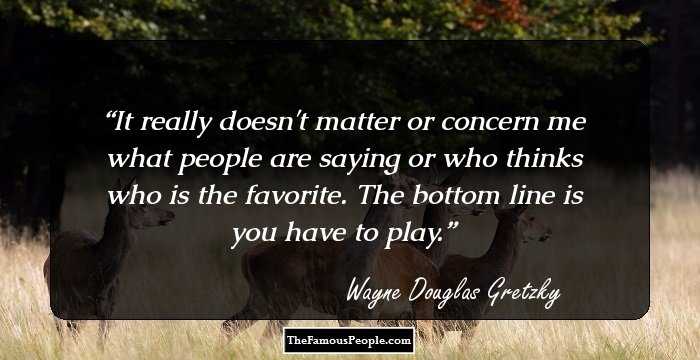
It really doesn't matter or concern me what people are saying or who thinks who is the favorite. The bottom line is you have to play.
![I think a lot of parents live their lives through the kids. Because they didn't make it [achieve something], they want their kids to make it. It puts a lot of undue pressure on the kids.](https://quotes.thefamouspeople.com/images/quotes/wayne-douglas-gretzky-79662.jpg)
I think a lot of parents live their lives through the kids. Because they didn't make it [achieve something], they want their kids to make it. It puts a lot of undue pressure on the kids.
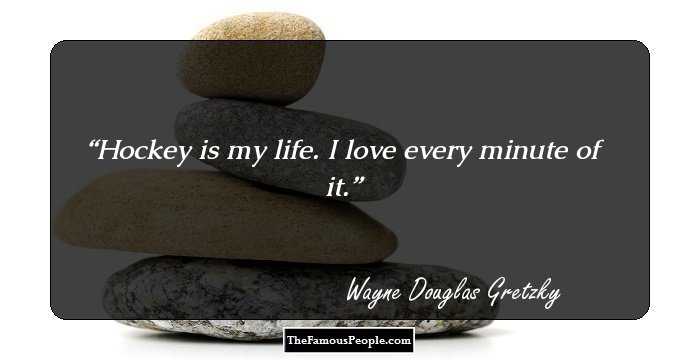
Hockey is my life. I love every minute of it.
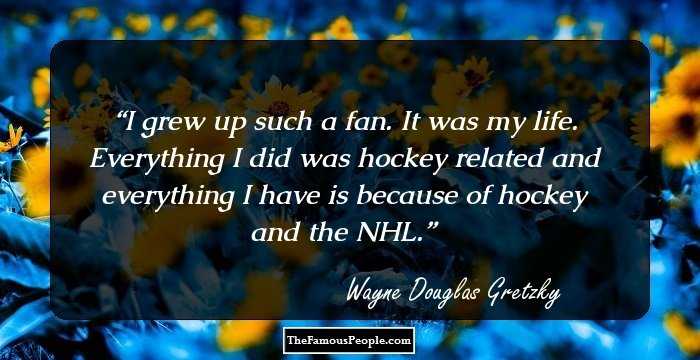
I grew up such a fan. It was my life. Everything I did was hockey related and everything I have is because of hockey and the NHL.
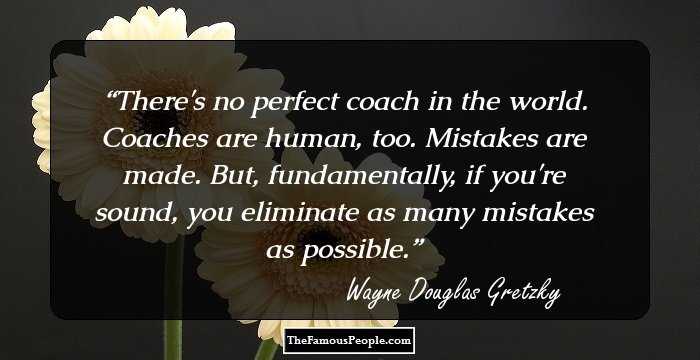
There's no perfect coach in the world. Coaches are human, too. Mistakes are made. But, fundamentally, if you're sound, you eliminate as many mistakes as possible.
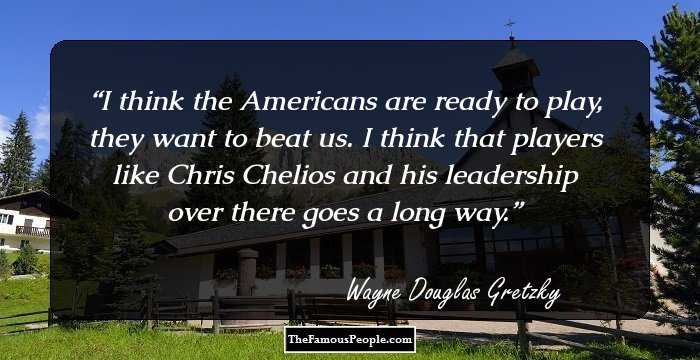
I think the Americans are ready to play, they want to beat us. I think that players like Chris Chelios and his leadership over there goes a long way.
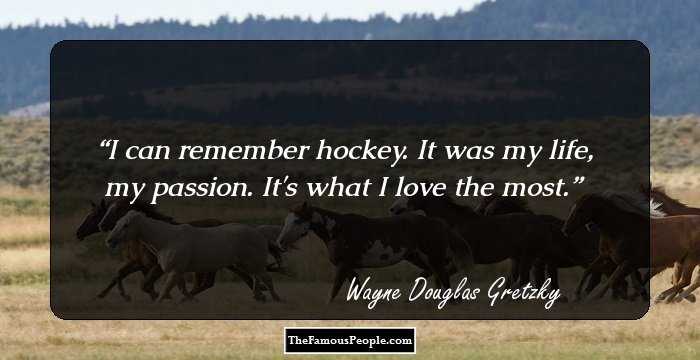
I can remember hockey. It was my life, my passion. It's what I love the most.
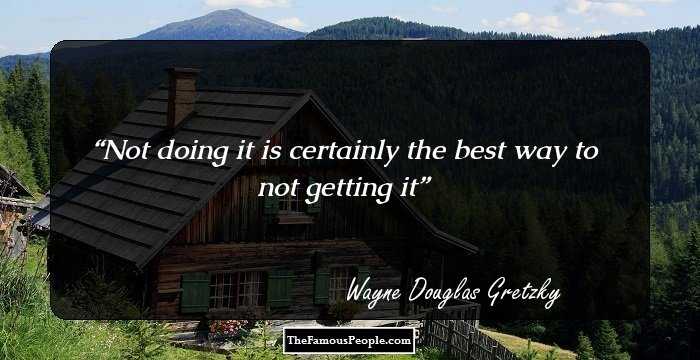
Not doing it is certainly the best way to not getting it
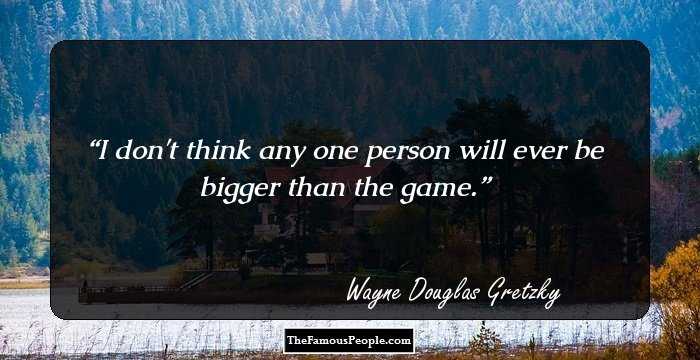
I don't think any one person will ever be bigger than the game.
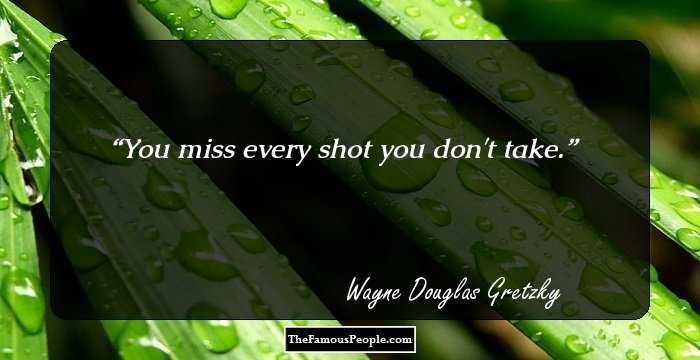
You miss every shot you don't take.

